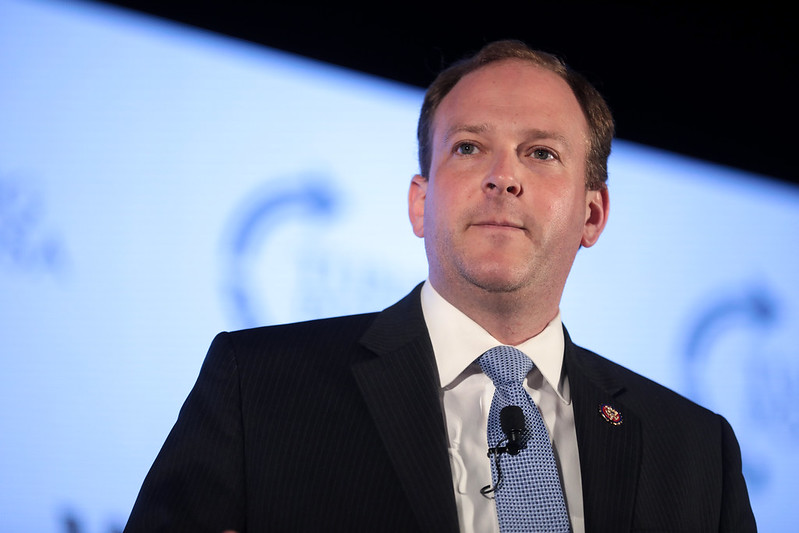The UK’s main climate science denier thinktank has seen its income from membership fees double over the last year, its latest accounts show.
The Global Warming Policy Foundation (GWPF) has consistently argued against the climate science consensus and was set-up by former Chancellor Nigel Lawson to combat what it describes as “extremely damaging and harmful policies” designed to mitigate climate change.
GWPF’s latest accounts published on Companies House last week show a rise in the income generated from membership fees from £5,479 in 2016 to £11,937 in 2017.
Donations were also reported to have increased from £257,044 in 2016 to £284,141 last year — raising the foundation’s total funds to £743,959.
GWPF also paid a fundraising consultancy fee worth £4,380, which appeared for the first time in the 2017 accounts.
Membership Fees
GWPF’s latest accounts show a reverse of a previous trend that saw the foundation’s membership income slump by more than 60 per cent between 2011 and 2016.
Writing in The Independent, Bob Ward, policy and communications director at the Grantham Research Institute on Climate Change and the Environment, said the 2016 membership fee income was “the lowest annual total in the foundation’s seven-year history”.
On its website, GWPF asks its members to give “at least £100 per year” to fund its activities.
GWPF did not respond to DeSmog UK’s request to clarify if membership had increased or if members had made larger donations this year.
But in a previous statement to The Independent, GWPF said membership had stagnated between 200 and 300 members over the last few years and that not all members paid the full £100 suggested fee.
The accounts also show that wages and salaries have increased by more than £30,000 reaching £119,824 in 2017 despite the number of employees — four — staying the same over the last couple of years. Trustees at the foundation, including Lawson, are not remunerated.
New Appointment: Sir Nicholas Bonsor
The accounts also make public the appointment of Sir Nicholas Bonsor as an honorary director of development.
Bonsor’s new role within GWPF has not been detailed in the foundation’s accounts. DeSmog UK asked GWPF whether the new fundraising consultancy fee meant Bonsor was in charge of fundraising, but did not receive a reply.
A practising barrister, Bonsor was as a Tory MP for Nantwich and Upminster between 1979 and 1997 and served as a minister of state for foreign affairs between 1995 and 1997.
In 2010, he supported Nigel Farage in his unsuccessful campaign to unseat Commons Speaker John Bercow from his Buckingham constituency.
Educated at Eton and Oxford, Bonsor inherited the title of baronet and is a vice president of the Standing Council of the Baronetage, a social network which provides advice to those wishing to prove their succession to a baronetage.
Bonsor has also held a number of directorships on the boards of mining companies.
He served as a non-executive director of London Mining, a London-based company which developed iron ore mines for the steel industry, and was appointed deputy chairman in 2010.
The company was involved in a major controversy in Greenland where voters feared ministers were surrendering their country’s interest to multinational mining companies.
London Mining was at the centre of the controversy in 2013 over its £1.5bn plan to build one of the world’s biggest iron ore mines to serve the steel industry in Beijing, as well as a pipeline and a deep sea port.
The project sparked concerns from environmentalists who feared the project would have significant social impacts and could damage Greenland’s natural areas.
London Mining went into administration in 2014 after going bankrupt.
Bonsor also served on the boards of other extractive companies including Blue Note Mining, Forest Gate Energy, Cassidy Gold, Metallon Gold and Tomco Energy.
Shout-out to Donald Trump
GWPF’s director Benny Peiser made reference to Donald Trump’s pro-fossil fuels energy policy in the director’s report section of the accounts.
Peiser mentioned President Trump’s decision to leave the Paris Agreement and praised his support for “cheap and secure energy as the engine to drive US economic revival”.
He wrote: “The election of Donald Trump as US president in November 2016 up-ended many of the assumptions on which much of Britain’s and the EU’s climate policies are based.
“He [Trump] has supercharged the transition to shale gas that has already transformed the US energy market, giving US manufacturers a massive boost over their European competition.”
Peiser also wrote that prime minister Theresa May’s poor result in last year’s general election had seen a “weakened government” focusing only on the Brexit negotiations, with “little time or appetite for energy policy reforms”.
Want to know more about the Global Warming Policy Foundation and Nicholas Bonsor? See their full profiles in our Disinformation Database.
Image Credit: Financial Times/ Wikimedia Commons/ CC BY 2.0
Subscribe to our newsletter
Stay up to date with DeSmog news and alerts







